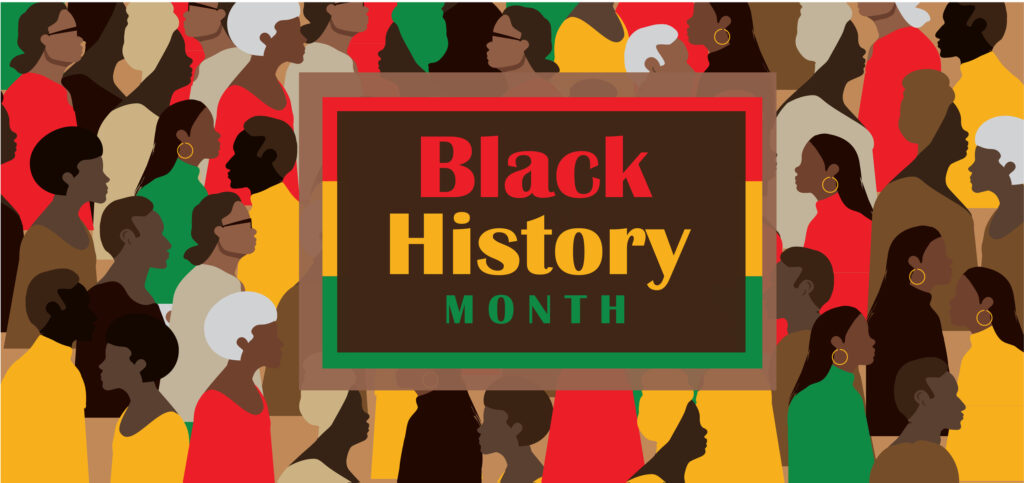Our Providence’s Well Being Trust Communications Team has expanded this list for readers to explore and learn about Black mental health trailblazers. We invite you to learn more about these inspiring figures who have paved the way for mental wellness in the Black community and beyond.

Solomon Carter Fuller, MD

Inez Beverly Prosser, PhD
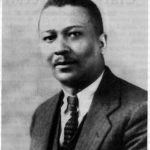
Francis Sumner, PhD

Mamie Phipps Clark, Ph.D.; Kenneth Bancroft Clark, Ph.D.
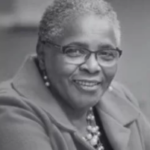
Altha Stewart, MD

Bebe Moore Campbell
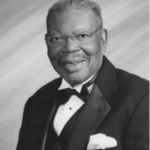
Robert Lee Williams II, PhD
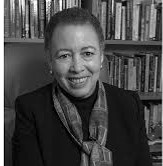
Beverly Daniel Tatum, PhD

Jennifer Eberhardt, PhD
As we celebrate Black History Month, we are recognizing and shining a light on several Black Americans who have made significant contributions to the mental health field in the areas of research, treatment, and advocacy in the United States. These individuals helped to pave the way for thousands and helped to diversify the field.
There’s still much work to be done to address the shortage of Black mental health professionals – 4% of psychologists, 2% of psychiatrists, 22% of clinical social workers, 7% of marriage and family therapists, and 11% of licensed professional counselors identified as Black/African American.
However, it’s important to reflect, celebrate, and honor the legacies of these pioneers.
As we take time to honor the legacies of Black mental health pioneers, let’s also continue to share these stories during Black History Month and all year long to help dismantle stigma and normalize seeking treatment and support to address mental health concerns so that no one struggles alone.
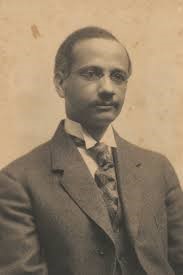
Solomon Carter Fuller, MD (1872-1953)
First Black psychiatrist in U.S. and a pioneer of Alzheimer’s disease research
Dr. Solomon Carter Fuller was the first Black psychiatrist in the United States. A renowned neuropsychiatrist and educator, Dr. Fuller performed considerable research related to degenerative diseases including conducting research on brain samples from Alzheimer’s patients and observing the physical impact of the disease on the brain. He worked alongside Dr. Alois Alzheimer who is credited for first describing the clinical and micro-anatomic features of Alzheimer’s disease.
The Solomon Carter Fuller Mental Health Center in Boston is named after Dr. Fuller.
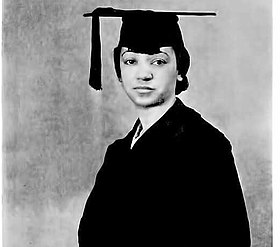
Inez Beverly Prosser, PhD (1895-1934)
First Black female psychologist
Dr. Inez Beverly Prosser was the Black woman to receive a PhD in psychology in 1933. She was passionate about the psychological and educational advancement of all Black students, and she was one of the first psychologists to argue that racism had a damaging effect on the psychology of Black children.
Dr. Prosser spent several years teaching at Black colleges, first at Tillotson College in Austin, and then at Tougaloo College in Jackson, Mississippi. Tragically, she died shortly after earning her degree in an automobile accident in 1934. She was believed to be only 34 years old (her birth year was around 1895, but the exact year unknown).
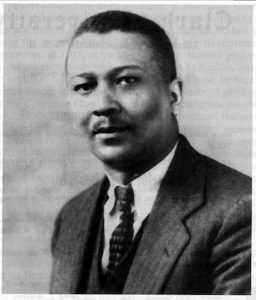
Francis Sumner, PhD (1895-1954)
First Black American to earn PhD in psychology
After his service in the Army during World War I, Dr. Francis Cecil Sumner enrolled in the doctoral program at Clark University. After earning his PhD, Sumner became a professor at various universities and published several articles despite numerous denials of funding from research agencies because of his color.
His research interests included understanding racial bias and supporting educational justice. He is one of the founders of the psychology department at Howard University, and he chaired the department from 1928 until his death in 1954.
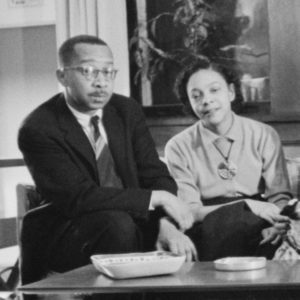
Mamie Phipps Clark, Ph.D. (1917-1983); Kenneth Bancroft Clark, Ph.D. (1914 – 2005)
Dr. Mamie Phipps Clark was a noted psychologist and the first Black American woman to earn a doctorate degree in psychology from Columbia University.
Dr. Kenneth Clark was the first Black president of the American Psychological Association.
Best known for the famous “Doll Study” which evaluated the psychological effects of segregation on African American children, Drs. Mamie and Kenneth Clark collaborated on this study which provided evidence in favor of ending school segregation in the 1954 Brown v. Board of Education Supreme Court ruling. The Clarks were also closely involved in the integration efforts of New York City and New York State.
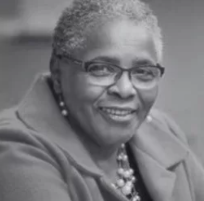
Altha Stewart, MD (1952- )
First Black American president of the American Psychiatric Association (2018-2019)
Dr. Altha Stewart, associate professor of psychiatry and director of the Center for Health in Justice Involved Youth at the University of Tennessee Health Science Center, served as the 145th president of the American Psychiatric Association (2018-2019). She was the first African American to lead the 37,000-plus member organization, which sets policy, establishes practice guidelines, and represents the field of psychiatry nationally and internationally.
Dr. Stewart worked for decades as CEO/Executive Director in large public mental health systems in Pennsylvania, New York, and Michigan. She is past president of the Black Psychiatrists of America, Association of Women Psychiatrists, and American Psychiatric Foundation. She is the recipient of the Black Psychiatrists of America Lifetime Achievement Award.

Bebe Moore Campbell (1950-2006)
New York Times bestselling author, Mental Health Advocate, and co-founder of NAMI Urban Los Angeles
In 2008, the U.S. House of Representatives designated July as Bebe Moore Campbell National Minority Mental Health Awareness Month in honor of the leading African American novelist and journalist, who also was an advocate and voice for individuals and families affected by mental illness. She was one of the founding members of the National Alliance on Mental Illness (NAMI) Urban Los Angeles. This NAMI affiliate was one of the first created with a primary mission of addressing the needs of communities of color – communities that face barriers to care, cultural stigma and discrimination.
Sometimes My Mommy Gets Angry, a children’s book, and 72 Hour Hold, a novel, written by Moore Campbell sheds light on the emotions and experiences of relating to and coping with a mental illness.
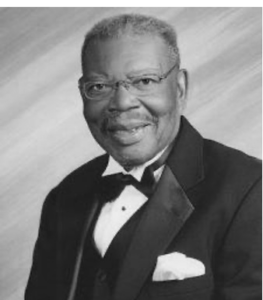
Dr. Robert Lee Williams II (1930-2020)
Co-founder, National Association of Black Psychologists
Born in Biscoe, Arkansas, Dr. Robert Lee Williams II earned a M.Ed. from Wayne State University in educational psychology and a PhD in clinical psychology in 1961 from Washington University in St. Louis.
He was the first Black psychologist hired at the Arkansas State Hospital, and he later served as a chief psychologist at the Jefferson Barracks Veterans Affairs Hospital in St. Louis.
Dr. Robert Lee Williams was a founding member of the National Association of Black Psychologists established in 1986, and he served as the organization’s second president. During his term as president, he developed the “Ten Point Plan,” a program that was instrumental in recruiting and sustaining Black graduate students in master’s and PhD psychology programs throughout the U.S. During his time at Washington University in St. Louis as professor of psychology and African American Studies, he founded the Department of Black Studies.

Beverly Daniel Tatum, PhD (1954-)
Leader in clinical psychology; her work focuses on race in education
Dr. Beverly Daniel Tatum received the Carnegie Academic Leadership Award in 2013 and the American Psychological Award for Outstanding Lifetime Contributions to Psychology in 2014.
Born in Tallahassee, Florida, she is a clinical psychologist, and her work focuses on race in education and racial identity development in teenagers.
Tatum is the author of two acclaimed books, Assimilation Blues: Black Families in White Communities: Who Succeeds and Why? and ”Why Are All the Black Kids Sitting Together in the Cafeteria?” And Other Conversations About Race, which was named the Multicultural Book of the Year by the National Association of Multicultural Education in 1998.

Jennifer Eberhardt, PhD (1965-)
Social psychologist whose research focuses on race and inequality
Dr. Eberhardt is a leading social psychologist and a professor in the Department of Psychology at Stanford University. She became the first Black president of the Association for Psychological Science (2021-2022), a global organization with more that 25,000 members world-wide.
Dr. Eberhardt is one of the world’s leading experts on race and inequality. Her research demonstrates how racial bias can lead to disparities in education, employment, housing, and the criminal justice system.
She is the author of Biased: Uncovering the Hidden Prejudice that Shapes What We See, Think, and Do, and she received Lewis Thomas Prize for Writing about Science in 2022.
Sources:
- https://newsnetwork.mayoclinic.org/discussion/black-history-month-honoring-dr-solomon-carter-fuller/
- https://www.goodtherapy.org/famous-psychologists/inez-beverly-prosser.html
- https://www.apa.org/monitor/2008/11/prosser
- https://encyclopediaofarkansas.net/entries/francis-cecil-sumner-6291/#:~:text=Francis%20Cecil%20Sumner%20was%20the,furthered%20the%20development%20of%20future
- https://www.apa.org/pi/oema/resources/ethnicity-health/psychologists/sumner-prosser
- https://thedecisionlab.com/thinkers/psychology/francis-cecil-sumner
- https://www.blackpast.org/african-american-history/altha-stewart-1952/#:~:text=Altha%20Jeanne%20Stewart%20is%20a,Army%20depot%20in%20the%20city
- https://www.nami.org/Get-Involved/Awareness-Events/Bebe-Moore-Campbell-National-Minority-Mental-Health-Awareness-Month/Learn-About-Bebe-Moore-Campbell-National-Minority-Mental-Health-Awareness-Month
- https://encyclopediaofarkansas.net/entries/robert-lee-williams-ii-7742/
- https://aaregistry.org/story/robert-l-williams-psychologist-born/
- https://www.thehistorymakers.org/biography/beverly-daniel-tatum-41
- https://www.prhspeakers.com/speaker/jennifer-eberhardt
Visit Mental Health America, to learn more about the pioneers listed above and other Black Americans who have contributed to the field of mental health.
Celebrate Black History Month
This month and throughout the entire year, take some time to learn about Black history in your area by finding an event or exhibit to attend. See below for a list of online resources:
- National Museum of African American History & Culture
- National Civil Rights Museum
- National Underground Railroad Freedom Center
- National Museum of African American Music
- The Civil Rights Trail
- Google Arts & Culture’s Black History and Culture, where you can experience Black history, arts and culture
- The National Center for Civil and Human Rights in Atlanta, which offers an interactive virtual tour of the American Civil Rights Movement

